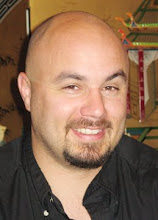So were we! But we hoped that maybe he was depressed and hiding out, or had gone to Orlando to see the woman he was dating, or thought he had changed his work schedule, or gotten drunk and was sleeping it off. We tried repeatedly throughout the day to contact him via phone and text messages but got no response. Then I tried calling the hospitals to see if he had been admitted after an accident or something. I did not find him. I tried calling his friend Michael, who said he had been with him the night before, but hadn't heard from him that day, April 9th. He lived an hour and a half away, so he couldn't just go over the Leif's apartment to check on him. We should have.
But, he was an adult. It seemed intrusive to burst in on him if he didn't want to talk, so we waited. We had no idea he was already dead.
The next morning, with no contact, we decided we had to go to his apartment and see him. Peter W. was too wrought to drive, so I drove there. We discussed that if both his vehicles, his car and motorcycle, were in the parking lot, it was a bad sign....and they were.
The apartment door was locked. Calling, knocking, nothing got an answer, so we went to the apartment complex office and asked the manager on duty to let us into his apartment because we were worried something had happened to him. To my surprise, she agreed to do so without an argument.
We went in, looking into the first rooms, the bedroom and bathroom, and didn't see him. Then we looked in the kitchen and he was there on the floor surrounded by a large and thick pool of blood and tissue, his head and upper back against the refrigerator door, his feet under the edge of the cabinet. A gun was on the counter. At first glance, it looked to me like he had shot himself in they eye, but I quickly saw the gunshot wound in the center of his forehead. I remember the two of us saying, "No, no no!"
Peter W. was in agony and I told him not to look. I got him out of the kitchen and called the sheriff's office. I knew we could not touch Leif, or anything in that kitchen, because there would be an investigation, when the only think I wanted to do was hold my son. I will always regret that I couldn't, and didn't.
The detective came. She found the bullet casings. We asked her personnel to be sure all his guns had no ammo in them. He had several more. She said to get everything of value out of there or it would be stolen. We had to get help to get his car and motorcycle to our home, and we packed up the computers, guns, guitars, and anything else of value we could in a neighbor's pickup truck. He and his wife were kind enough to drop what they were doing and drive to Tampa to help us.
I called the insurance company. We drove home. I called family members. All of this sounds so dry and matter-of-fact, but our hearts were broken. There weren't enough tears to every cry it out.
He had been dead a day, but his death certificate says "Found April 10, 2008." The autopsy says it was a suicide and I talked to the pathologist who did the autopsy and asked how he knew that. He said it was a contact wound, meaning the gun was against his head....the gun he bought the day before.
Fifteen years and I still miss him every day of my life.



























